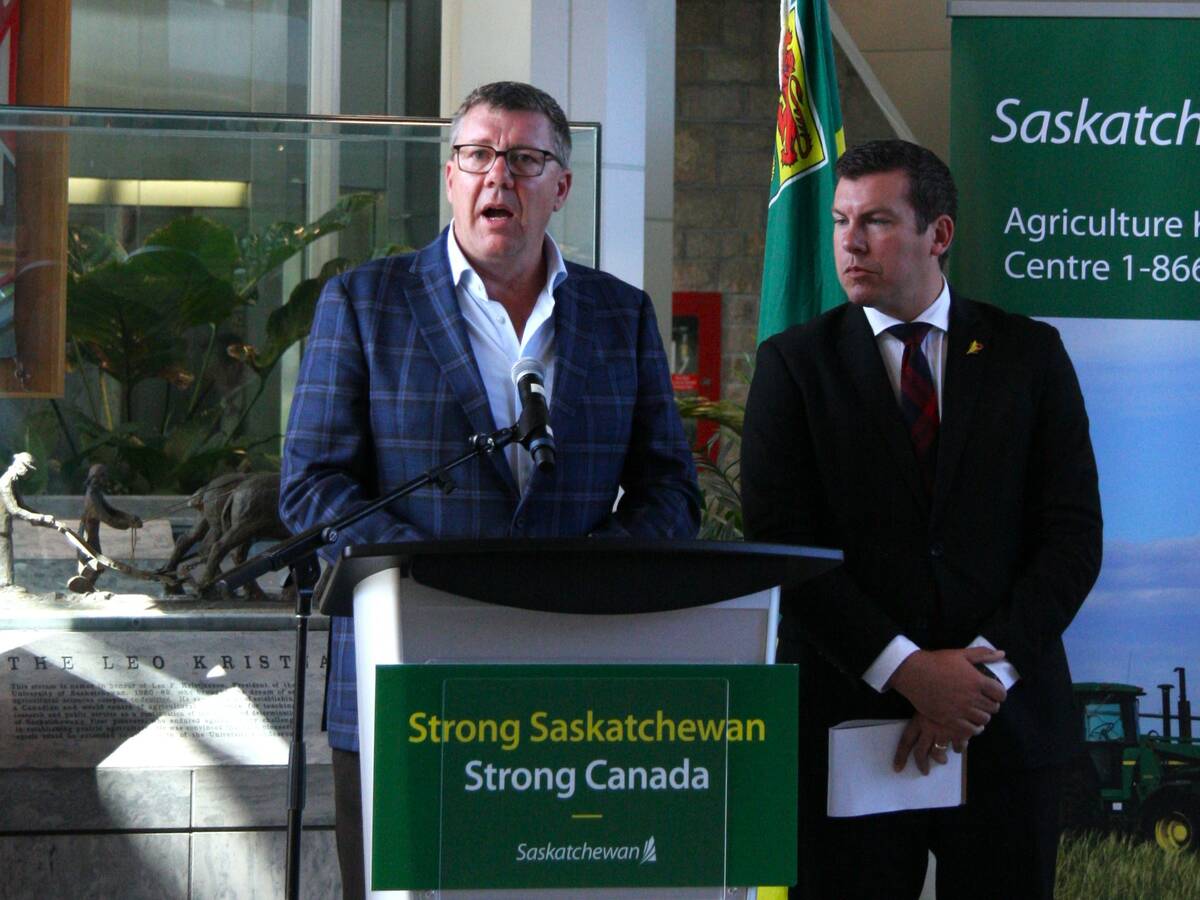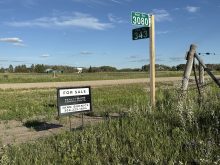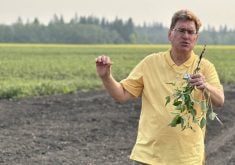The Alberta Court of Appeal has upheld a decision that allows lay people, not just veterinarians, to practice horse dentistry.
The three appeal court justices ruled Jan. 28 it is legal for non-veterinarians to practice dentistry on horses in Alberta.
Todd Williams, owner of the Canadian Equine Dental Consultants, who helped shepherd the case through court, said the decision is a positive move for horse owners.
“It now means horse owners now have a choice of how their horses are being treated and by whom,” said Williams who travels across the province providing dental treatment to horses.
Read Also

Key actions identified to address canola tariffs
Federal and Saskatchewan governments discuss next steps with industry on Chinese tariffs
Until the 1990s, horse dentistry was a relatively rare practice. But the demand for equine dentists increased as the number of high performance horses rose in the province .
A horse dentist can make adjustments to the teeth to improve the horse’s bite, remove loose teeth, float or rasp the teeth and extract the wolf teeth.
In the past, many of Williams’s referrals for the delicate adjustments came from veterinarians who didn’t feel qualified to perform the tasks.
“I’m still being referred to by veterinarians who feel it’s beyond their scope,” he said.
Greg Andrews, past president of the Alberta Veterinary Medical Association, said slicing open a horse’s gum, extracting a tooth and sewing it back up is clearly the responsibility of a veterinarian.
“Some (equine dentists) have a lot of practical knowledge. Some of them have zero training and to go out there and do a practical application is not easy. Teeth are a live tissue,” said Andrews, a veterinarian who practices in Calgary.
The AVMA took the issue to court, claiming Louis Pequin, an Alberta farrier who trimmed and shod horses feet, was not qualified to perform equine dentistry.
In June 2002, Alberta Court of Queen’s Bench ruled Pequin did not violate the veterinary medicine act by performing equine dentistry. The Court of Appeal upheld that ruling.
Clay Gellhaus, deputy registrar for the AVMA, said while the legislation may not be clear about who can perform equine dentistry, the association still has concerns about allowing untrained people to perform dentistry on horses.
“(Equine dentists) have no minimum requirements or regulations,” said Gellhaus.
“You can’t just walk off the street and say, ‘I can do this.’ I’m quite a good internal surgeon, but it’ll be a frosty Friday when I do it on my son,” he said.
Williams said the training for an equine dentist is similar to apprenticeship training where a beginner learns under the tutelage of a more experienced person. Equine dentists have started talks with some local colleges to provide a more formal equine dentistry program.
In recent years, since the increase in demand for equine dentists, veterinarian associations have also stepped up equine dentistry training for veterinarians, said Andrews.
He said the veterinary association is looking at its options, including working with the provincial government to change the veterinary act to clearly state only veterinarians can practice equine dentistry.
“We’re certainly going to investigate changing the legislation,” said Andrews.
















